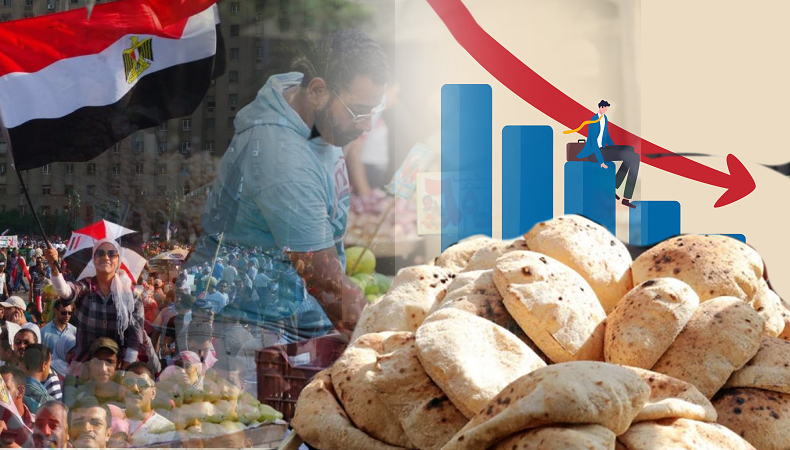Egypt’s middle class is on verge of suffocation due to economic catastrophe

According to Agence France-Presse, Egypt’s economic crisis is bringing the nation’s middle class dangerously close to impoverishment. Many families are being forced to make dramatic decisions and alter their lifestyles due to currency devaluation and escalating prices.
Manar, a 38-year-old mother of two, was one of the families featured in the report who expressed anxiety for the future in a nation undergoing difficult economic reforms in response to the demands of the International Monetary Fund (IMF). She compared us to someone who has been forced to give everything up after being struck by an earthquake. “We formerly led respectable lives. All I can think about right now is how much bread and eggs cost.”
Inflation has increased to 21.9% as the Egyptian pound has lost half of its value relative to the US dollar since March. The majority of the nation’s necessities are imported, and according to government statistics, the cost of food has climbed by 37.9%.
However, Johns Hopkins University economist Steve Hanke calculates inflation using purchasing power parity and accounting for black market currency rates. He calculated the real inflation rate in Egypt to be 101%.
Read | Italian activist deported by Israel after West Bank raid arrest
The Covid pandemic, the Russia-Ukraine war, and years of political unrest, security concerns, and bloodshed have all had a negative impact on the Egyptian economy. Both Russia and Ukraine are important sources of both mass tourism and wheat exports to Egypt.
After receiving a $12 billion bailout in 2016, the Cairo government implemented a number of reforms, including significant currency devaluation and extensive subsidy reductions. However, the World Bank estimates that a third of Egypt’s 104 million citizens currently live below the poverty line, and a further third are “at risk of becoming impoverished.”
More and more middle-class Egyptians, including “private sector personnel making 4,000-6,000 pounds” ($135-202) per month, are coming in for financial assistance, said Ahmed Hisham, a representative of the Abwab El-Khair charity.
He told AFP that “many folks have life savings they were setting aside.” “Now they use them for daily costs or medical care.” Such people used to earn a good living, Hisham continued. “Now they struggle to survive. They are ashamed to come to us because they have never been in this situation before. One dad explained to us that he could either feed his kids or pay for their education, but not both.”
According to the deputy director of the Alternative Policy Solutions research project at the American University in Cairo, it is challenging to define what the middle class is nowadays. Soha Abdelaty expressed concern that people who weren’t yet close to the poverty threshold “may find themselves moving closer and closer.” These are people for whom maintaining a standard of living is no longer feasible, but they are nevertheless ineligible for government social aid.
According to the most recent survey, which was published in 2020, the average annual wage in Egypt is 69,000 pounds ($2,300), which is slightly more than the $3.80 per day poverty line set by the World Bank.




